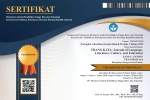Translation Challenges: The Case of Edo
DOI:
https://doi.org/10.54923/jllce.v3i1.27Keywords:
Translation, Edo language, thematic inconstancy, ambiguity, lexical gapsAbstract
Translation according to Uwajeh (2005), is the linguistic communication activity whereby the information expressed with some given construct, called a ‘source text’, of a given language (a source language), is re-expressed with some equivalent construct, called the ‘target text’, of another given language (the target language). The study investigates the challenges an Edo translator encounters when translating either from English to Edo or from Edo to English. The study sets out to help the Edo native speakers have the additional competence of reading and writing in the Edo language. The data for the study was collected from native speakers of Edo who can read and write the language and through direct interviews with those who are competent in speaking the language. The theoretical framework adopted for this study is the formal correspondence and dynamic equivalence. The study reveals that the non-harmonization of the orthography of the language is one of the challenges an Edo translator would encounter. Ambiguity and thematic inconstancy present another difficulty (caused by the difference in the cultures of the source and target languages). The study offers sufficient support for the proposal that the writing system be harmonized in order to decrease the challenges that language users have when accurately writing the Edo language, particularly when translating.





